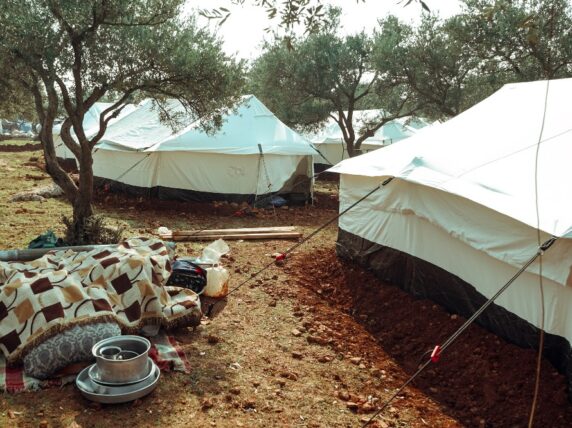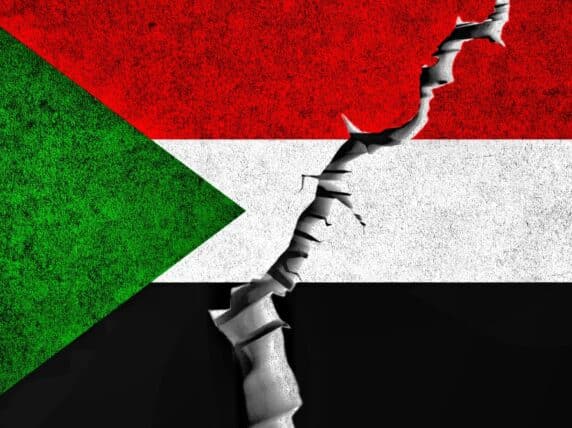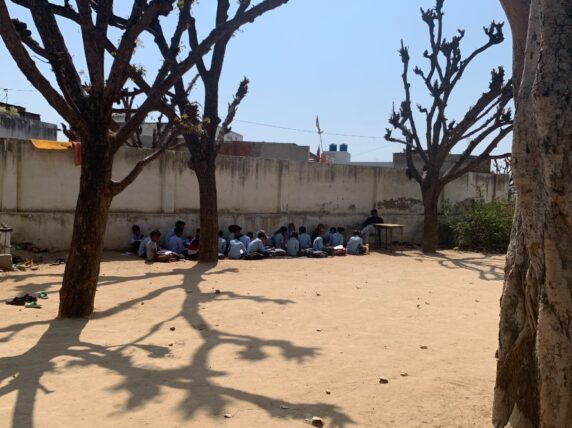Development in the face of Covid-19: Views from Nigeria
Over 22,000 cases of coronavirus infections have been confirmed in Africa.
There have been over 1,124 deaths and about 5,500 people have recovered from the disease. Only two African countries – Comoros and Lesotho – appear to have been spared so far and have no confirmed cases.
Since the first cases were confirmed in Egypt and Nigeria, African countries have shifted from trying to prevent the virus getting into their countries, to containing and mitigating the impact of the pandemic to protect fragile healthcare systems from being overwhelmed.
Just as in other parts of the world, the pandemic – and some of the measures adopted to combat it – has drastically infringed on all parts of our lives and all sectors of human endeavour. This includes the international development sector, whose experts in the health sub-sector are at the forefront of this fight.
I interviewed a range of development experts in Nigeria to get their insights on how the Covid-19 crisis could change development.
Ramifications on development delivery in Nigeria
The development sector is being profoundly constrained by the Covid-19 pandemic. The direct impacts of the disease include the crash in investment markets, closure of schools and public places, shutdowns of international flights and tourism, and lockdowns of cities and countries. These impacts are setting in motion a series of changes that are expected to reshape development in Africa as a whole, and in Nigeria in particular.
Nigerian development experts generally fear that there will be “a decline in development funding coming from traditional ODA (official development assistance) countries from the global north”, as these countries redirect their resources to provide stimulus for rebuilding battered economies and safety nets to support local populations.
One of the experts interviewed believes that “as a result of so much money being lost in the investment markets, less resources will go to development projects that depended on philanthropic organisations” and foundations founded or supported by major corporations.
“Future grants for various development projects will shrink as the economic downturn kicks in fully,” said Oluwabusayo Sotunde, managing editor at RuralReporters and fellow with the Transparency and Accountability Initiative, a US-based donor collaborative platform. She also believes that “there will be delays in development funding” as countries struggle to meet up with the ODA commitments they made before the Covid-19 outbreak.
Interestingly, some experts interviewed, like Nonso Jideofor who is co-founder of Agency, an NGO working in Africa and Latin America, felt that the changes may present the opportunity for developing countries “to wean off the developed world, albeit unpreparedly, and chart their own course in a make or break move” as development aid reduces drastically from developed countries. Nonso also thinks that perhaps “Covid-19 is naturally adjusting international development to where it needs to go… with less global north development support in global south, and more learning and exchange across the board – possibly from a distance.”
Besides less available funding in the near future, Covid-19 has stalled work and delivery on projects for partners. A lot of development work in the field has been put on hold as a result of varying degrees of lockdowns. For instance, the forced closure of schools has halted school feeding programmes.
The lockdown of cities, airports and transport systems, and the new need for social distancing, has necessitated the “cancellation of important capacity development and training programmes” according to Segun Elemo, director of the Paradigm Leadership Support Initiative (PLSI). In addition, it has necessitated “the re-prioritisation of work plans and activities” and put ongoing activities on hold, according to Ololade Periola-Fatunsi, a development analyst with the regional development agency, DAWN Commission, in South-West Nigeria.
Other experts expect increased pressure on development organisations – which are already stretched thin with limited budget and manpower – to cope with surged needs expected from vulnerable communities, who will be severely affected by lockdowns and other Covid-19 measures.
Oyin Asaaju, programmes officer for the World Hunger Fighters Foundation, is concerned about how the lockdowns could hamper the ability of farmers and rural communities to get necessary supplies from cities for the new planting season, as most of them depend on rain-fed farming. This will have a likely impact on food security for rural farmers and the urban poor.
Subscribe to our newsletter
Our weekly email newsletter, Network News, is an indispensable weekly digest of the latest updates on funding, jobs, resources, news and learning opportunities in the international development sector.
Get Network News“We (Nigerians) are on our way to recording the highest annual food wastage of all time (in the history of Nigeria). Farmers are running out of business as they are forced to abandon any existing farm produce, or delay planting when we are in the middle of the season. Farmers at every level would need government support to keep them afloat.”
Positive systemic shifts?
The Covid-19 pandemic is expected to have some positive impacts on development organisations and how they deliver their work in Africa.
There has been a sharp rise in the adoption of teleworking in the sector, recently necessitated by the lockdowns. Idayat Hassan, the director of the Centre for Democracy and Development (CDD-West Africa), which works across West Africa, opines that “African organisations are (now) learning to (better) organise online, work remotely, and to see the need to jettison face-to-face meetings, trainings and workshops”.
Nonso Jideofor believes that Covid-19 will compel “development actors in the global south to seek new and innovative sources of funding for their work”. Oluwabusayo Sotunde thinks that it “will lead to more innovative use of development funding – limiting overheads and significantly reducing the cost of meetings”. She also expects to see “more synergy in service delivery among different (budget-constrained) development organisations to align their purposes in ways that leverage individual and collective strengths” and maximise the collective impact of their limited resources.
Oyin Asaaju believes that “this pandemic gives the opportunity to put a lot of things into perspective which (will) put us (Nigeria) on the track of actual transformation of the (agricultural) industry”.
Overall, experts interviewed generally believe that “Covid-19 has helped (and is helping) to institutionalise new ways of working”. Hopefully African development organisations can leverage some of the positive changes to redefine their roles, stay resilient and synergise to maximise their work in improving the lives of some of the most vulnerable communities and people in the world.
Category
News & views



